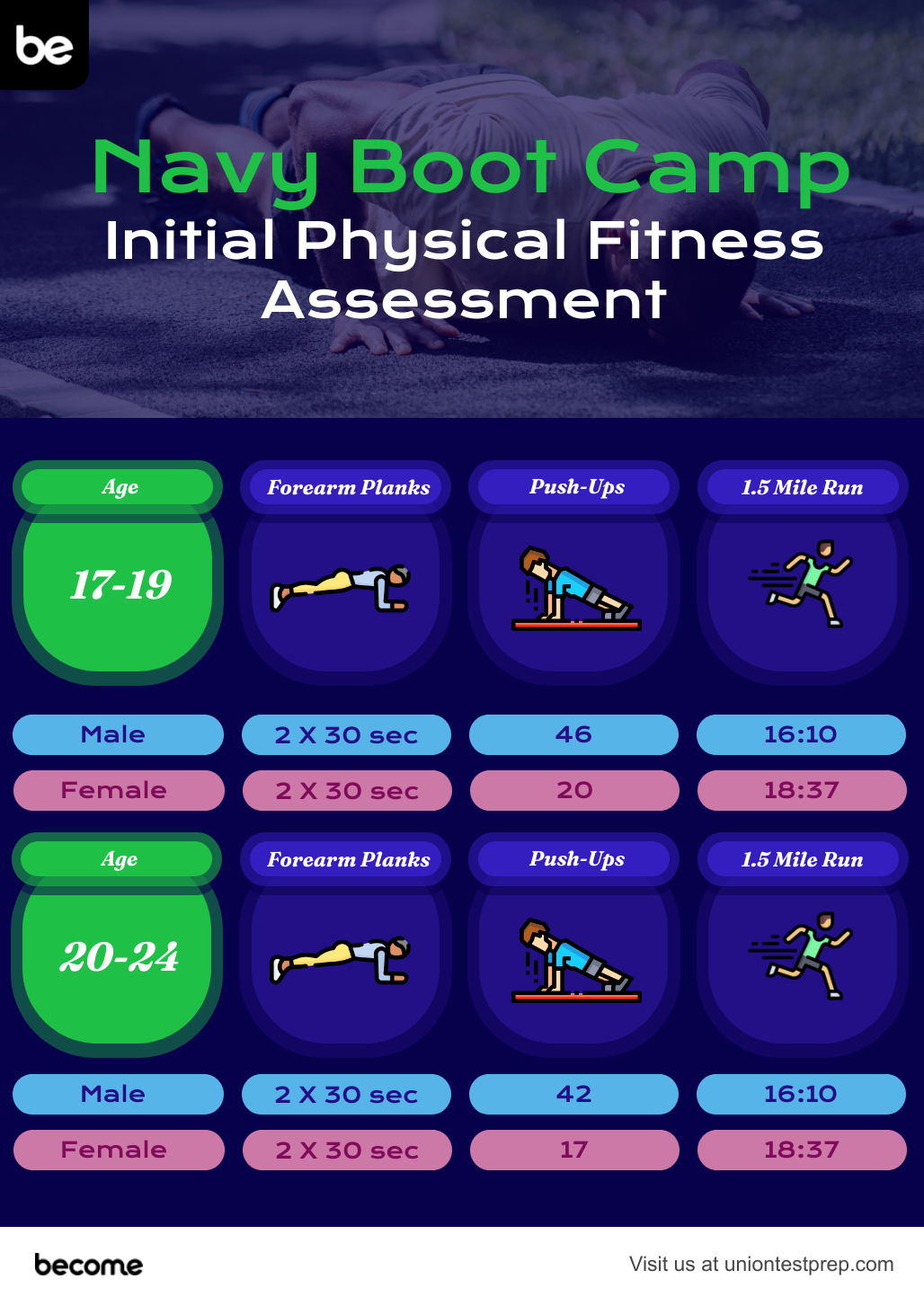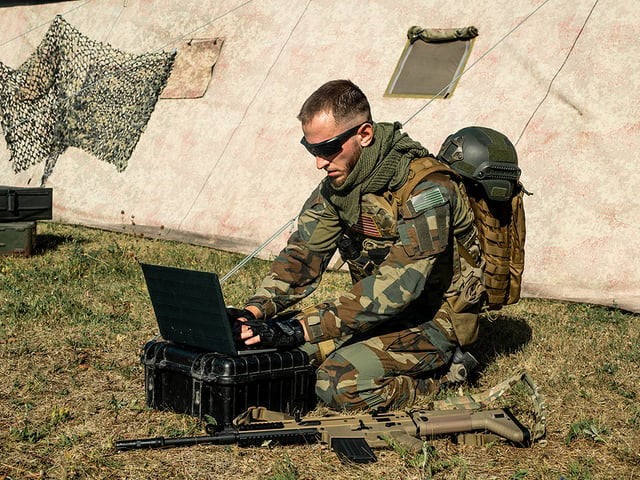
How to Join the Navy
Did you know there were over 39,000 new U.S. Navy recruits in 2020?
More than half of those recruits graduated from the Navy’s Recruit Training Command, making it the largest class of recruits in more than 15 years.
Are you wondering, “how do I join the Navy too?”
Many young Americans are joining the Navy after college to serve their country and have the opportunity to earn advanced degrees with tuition costs almost fully covered.
But joining the Navy isn’t as easy as it seems!
To join the Navy, you must meet a specific set of requirements concerning age and level of education. You must also pass a background check, physical exam, and the Armed Services Vocational Aptitude Battery (ASVAB) test.
Find out how to join the Navy here.
Navy Requirements
You must meet specific requirements to join the Navy. Eligibility requirements are subject to change according to the needs of the military. Keep in mind that the process for an enlisted sailor is different from that of a Naval officer.
Enlisted personnel perform specific job functions and have the knowledge, skills, and abilities to carry out those tasks successfully. Naval officers manage the enlisted and plan missions, provide orders, and assign tasks.
At the time of publication, the requirements for both are as follows.
Age
To join the Navy as an enlisted sailor without parental consent, you must be 18 years old. With parents’ permission, you can join at 17 years old. The Navy does not consider applicants age 39 or older.
To join the Naval officer program, you must be at least 19 years old. The Navy does not consider applicants over the age of 42.
Citizenship
To become a Navy sailor or Naval officer, you must have U.S. citizenship. However, there are exceptions.
You can still join as an enlistee if you are a permanent resident or a registered “resident alien.” To fall under this classification, you will need to have a current green card or have had one in the previous year.
Education
To join the Navy as an enlisted sailor, you will need a high school diploma and a qualifying score on the ASVAB test. However, you do not need a college degree.
To join the Navy as a Naval officer, you must have at least a bachelor’s degree from an accredited college or university. Your degree can be in any field. You must also earn a qualifying score on the ASVAB test.
Medical
The U.S. Navy has strict medical and physical requirements. This is to ensure that all Navy personnel can fulfill their military duties. Some specific career paths have stricter requirements, including aviation, diving, and special warfare.
Enlisted personnel and Naval officers must meet certain height and weight standards. If you exceed these restrictions, you won’t be able to enlist.
You must also complete and pass blood and urine tests to confirm you don’t have any diseases. Your urine test will also confirm whether you have drugs or alcohol in your system.
Enlisted sailors must also pass an Initial Fitness Assessment (IFA) the Navy Physical Readiness Test. These tests involve several physical tasks, including planks, push-ups, and a timed 1.5-mile run.

In addition, you must have at least 20/40 vision in one eye and 20/70 in the other with no color blindness.
Background Check
All Navy personnel must undergo a background check regardless of the position they are applying for. The Navy will do basic records check for any felonies or misdemeanors. You may also be fingerprinted and have your financial and driving history checked.
The purpose of a background check is to ensure you are of good character with unwavering loyalty to your country.
How Long Does It Take To Join the Navy?
From the time you first speak to your recruiter to the time you take the ASVAB test, the entire process can take between 6 to 12 months.
However, the process can depend on several factors, including waiting on medical waivers and how many times it takes you to pass the ASVAB test. If you fail to meet the minimum ASVAB score of 31, you must wait 30 days before retaking the test.
If you’re not satisfied with your score, you can also retake the test. Keep in mind this will further delay your enlistment.
Benefits of Joining the Navy
Joining the Navy is a truly memorable experience that offers far more than rewarding work and an exciting lifestyle.
Here are just some of the benefits to consider when enlisting in the Navy.
Enlistment Incentives
There are many benefits to joining the Navy, but few compete with an enlistment bonus. If you enlist with the Navy, you may be eligible for up to $50,000 in cash bonuses.
The same goes for those on active duty who have completed at least 17 months of continuous duty. These bonuses are designed to encourage members to enlist or reenlist in the service.
To find out more about enlisting bonuses, talk to your recruiting office.
Job Opportunities
The Navy offers its service members plenty of opportunities to work in various positions depending on their career goals and skillset.
You might be surprised by how many career options there are in the Navy. You may find yourself working as a:
-
Aviation machinist’s mate (AD)
-
Nuclear engineer
-
Commercial diver
-
Nurse
-
Information security analyst
-
Intelligence specialist
-
Aviation rescue swimmer
-
Explosive ordnance disposal technician (EOD)
Work hard enough, and you may find yourself in an enviable Navy career.
Travel Opportunities
The U.S. Navy offers numerous travel and recreational opportunities, including generous vacation time – up to 30 days paid. You will have the chance to travel far and wide on the sea and land.
Depending on your position in the Navy, you may be able to visit plenty of foreign countries, meet lots of people, and spend your free days enjoying the ports.
If you have a travel bug, you might like to consider naval jobs that spend more time traveling the world.
Educational Opportunities
The Navy allows you to earn a college education at their expense, almost paying for the entire tuition on your behalf. The G.I. Bill helps enlisted personnel pay for college and graduate programs. The Bill also provides educational assistance to Veterans and their dependents.
What Is the ASVAB Test?
The ASVAB test measures your strengths and potential for success in any military branch. The test is given to potential military recruits to help determine which brand of service and jobs they are most suited for.
The ASVAB is not a test of your intelligence. Instead, it predicts future academic and occupational success in the Navy. There are two versions of the ASVAB – a computer test and a pencil and paper test.
Both tests are multiple-choice but vary in how many questions are in each section. Depending on the test format, the test will take between 2–3 hours.
You will likely take the ASVAB at your school or a Military Entrance Processing Station (MEPS) in your local area. Some schools use the ASVAB test to guide high schoolers in career planning.
The ASVAB test covers ten areas:
-
General Science (GS)
-
Arithmetic Reasoning (AR)
-
Word Knowledge (WK)
-
Paragraph Comprehension (PC)
-
Mathematics Knowledge (MK)
-
Electronics Information (EI)
-
Auto Information (AI)
-
Shop Information (SI)
-
Mechanical Comprehension (MC)
-
Assembling Objects (AO)
However, the most critical test sections are Word Knowledge, Paragraph Comprehension, Arithmetic Reasoning, and Mathematics Knowledge. These sections make up your Armed Forces Qualification Test (AFQT) score.
Your AFQT score will be between 1–99. For example, if you achieve a score of 60, it means you did better than 60% of other test-takers.
You can’t fail or pass the ASVAB, but you must obtain a minimum qualifying score that varies between services. To join the Navy, you will need a score of 31 or higher.
Need Help With the ASVAB?
It’s almost impossible to score a 99 on your AFQT score, but you want to get the highest score possible. The higher your score, the more jobs you will qualify for.
To do this, you need to prepare as early as you can. Thankfully, there are plenty of resources to help you like those found on Union Test Prep.
Taking ASVAB practice tests, reviewing ASVAB flashcards, and reading study guides will give you an idea of what you’ll see on the actual ASVAB test. This will help you feel more prepared on the actual test day.
ASVAB Practice Test
Taking an ASVAB practice test is your best chance to avoid getting a low score on the actual ASVAB test. A low score might mean missing out on the Navy job you had your heart set on. Or worse yet, not getting into the Navy at all.
Union Test Prep’s free ASVAB practice test will help you identify your weaker areas so that you can maximize your study time and improve your understanding. Practice tests are also effective at:
-
Building stamina
-
Learning the design of the exam
-
Alleviating anxiety and stress
-
Perfecting your timing
-
Tracking your progress
-
Cementing knowledge
-
Retaining information
Most importantly, taking the ASVAB practice test often results in a higher overall score on your actual exam. Don’t limit your career opportunities, and take advantage of Union Test Prep’s free ASVAB practice test. You won’t regret it.
ASVAB Study Guides
You don’t want to miss out on your dream career because you didn’t prepare for the ASVAB test. One way to improve your knowledge is by reading through a study guide.
The purpose of study guides is to highlight important concepts and get a big picture idea of what your test will look like.
Union Test Prep’s free ASVAB study guides will give you an overview of the concepts you will need to know. Better yet, the study guides will help you determine the areas you may need to spend more time studying on.
For example, you may realize that you have excellent word knowledge skills, but your mathematics knowledge is lacking. Now you know what to refocus your study efforts on.
Once you have the study guide in front of you, do more than just read it. Take the time to understand the content and make notes of the important details. If you can do that, you should be well prepared for your test.
ASVAB Flashcards
While practice tests are a great resource, there are alternative study options to help improve your understanding of tricky concepts.
Flashcards are an effective memory-aid tool that can help you learn new material quickly. While flashcards are typically associated with younger children, digital-based flashcards are becoming an essential resource for college students in their learning.
Union Test Prep’s free ASVAB flashcards are a fun and quick way to test your knowledge. You can use them alone or in tandem with the ASVAB practice test.
The benefit of using Union Test Prep’s flashcards is that they are split up into different topic sections and include questions that are likely to be on your actual test, albeit in different wording.
Study your flashcards alone or join a study group and give yourself the best chance at success.
Are You Ready to Join the Navy?
Joining the Navy is one of the most rewarding experiences you will have in your life. Make lifelong friends, enjoy a steady income, and take advantage of excellent career advancement opportunities.
You must meet several requirements to join the Navy, including completing the ASVAB test. The ASVAB test helps determine which branch of service and which military jobs you are best suited for.
Getting a good score will dictate whether you can enlist in the Navy and which jobs you can apply for after enlistment.
To get the best results on the ASVAB test, you will need to maximize your study time to avoid missing out on your dream career. Union Test Prep is your go-to resource for ASVAB practice tests, study guides, and flashcards.
Start your military journey today with your free ASVAB practice tests!
Keep Reading

Armed Services Vocational Aptitude Battery Blog
What is the ASVAB Test?
The Armed Services Vocational Aptitude Battery, known as the ASVAB, is …

Armed Services Vocational Aptitude Battery Blog
Military MOS Codes
Military Occupational Specialty (MOS) codes are an integral part of the…

Armed Services Vocational Aptitude Battery Blog
U.S. Army Height and Weight Standards for Females
The U.S. Army’s commitment to maintaining a robust, physically fit, and…